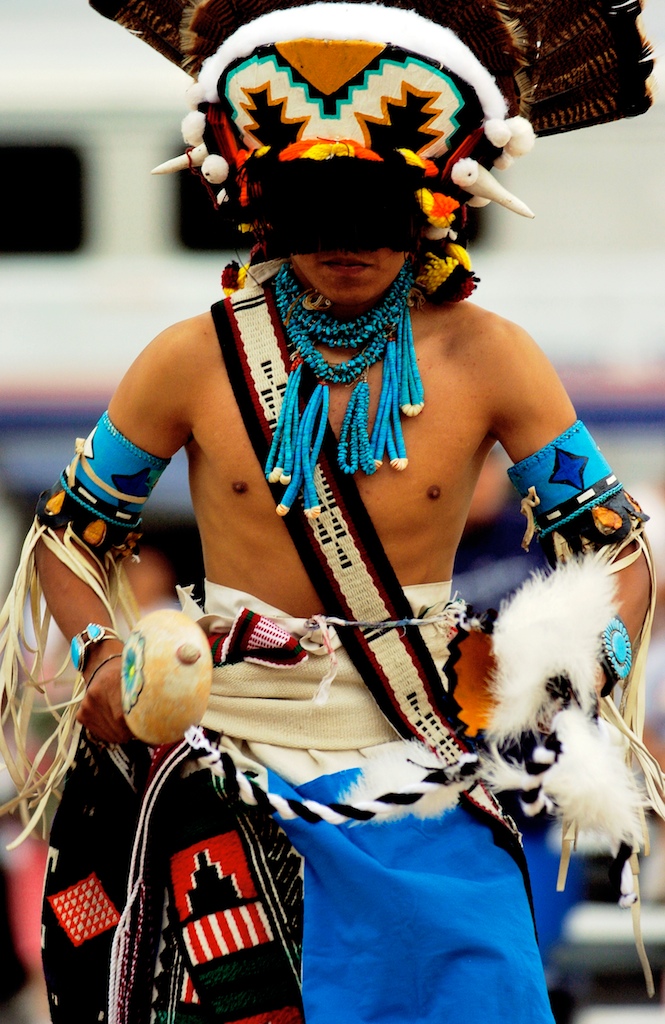Posts Tagged ‘documentary’
Respecting Culture: Know the Rules Before You Go
As a photojournalist, I have taken photos of situations in which it would normally be considered rude or insensitive to bring a camera: car accidents, shootings, funerals, wakes, etc. but it was part of the job. For the most part, my presence as a photojournalist was necessary – I was there to tell a story. More often than not, I was invited and discussed the arrangements with the family or the family’s representative. Photojournalists have a code of ethics in which the majority of us hold dear. But what about tourists? Should we, when on vacation, hold ourselves to a code of ethics?

Even though I was on assignment and invited to a public dance in Gallup, I still asked the permission of the dancers to make a photograph. A little common courtesy goes a long way. (Photo Credit: Jeremy W. Schneider)
Yes. I believe we need to be culturally sensitive no matter where we are or whatever the purpose of our photography happens to be.
Take for example the Zuni Tribe who live in the Pueblo of Zuni along the western edge of New Mexico. I worked as a photojournalist in New Mexico and had several opportunities to go to the Pueblo of Zuni for various events. Surrounded by the large Navajo Nation, the Zuni Pueblo is a small, beautiful area away from the nearest city of any size, Gallup.
I would drive down, photograph my assignment, and return to Gallup to edit photos but after a few trip down to Zuni I began to notice the tourists. For the most, they were respectful of the residents of Zuni Pueblo (remember, it’s not a museum, it’s a community just like any other) but there were a few who were, quite simply, very pushy.
So I asked a friend of mine, who was raised in Zuni Pueblo but lived and worked in Gallup, about the tourists. The stories he told, although humorous at times, were shocking. My favorite is a how a lady walked up to his home, opened the door, peered in while he and his brother were playing video games and said “What? Video games? This is supposed to be a REAL Indian village.”
Now, most of us aren’t quite that, ummm, clueless, but there are those who break the rules to some degree or another.
The Zuni Tourism office even has a posting on its Website on how to visit the Pueblo and be respectful. One of the more important – and possibly overlooked – rules is the photography rule posted clearly on the Website:
“Consider capturing visual memories instead of photographs! Assume that ALL “cultural” activities within the Pueblo are off-limits to photograph, video or audio record or sketch unless specifically informed otherwise. Always inquire first and ask permission before photographing any activity involving people. NO photography is permitted of images inside the Old Mission.”
Does this mean you shouldn’t visit Zuni Pueblo? No. Of course not. It’s important, however, to remember to be aware of the social norms of the area.
Just as you would consider it rude for strangers to walk into your church, temple or mosque and take pictures, so too is it rude to photograph the religious and/or cultural activities of another groups’ way of life.
Another example would be that of the Old Order Amish who live mainly in Pennsylvania and Ohio. For the most part, their religious beliefs forbid them to own a photograph or pose for a photograph and they wish to not be photographed. I have, however, seen tourists clicking away even after they have been asked to stop.
If you’re ever asked to stop taking a photo, please respect the rights of the person whom you are photographing. ALWAYS ask permission first if possible. ALWAYS check with tourism offices when traveling to an area that is outside of what you’re used to. If there’s no tourism board, then follow the instructions on signs. A camera isn’t a license to do whatever you want whenever you want. It’s a tool to make memories, preserve emotions and convey a message so convey the message of sensitivity by NOT making photos when it’s inappropriate.